Health Bites: Nutrition During Injury Recovery
Health Bites: Nutrition During Injury Recovery
Health Bites: Nutrition During Injury Recovery
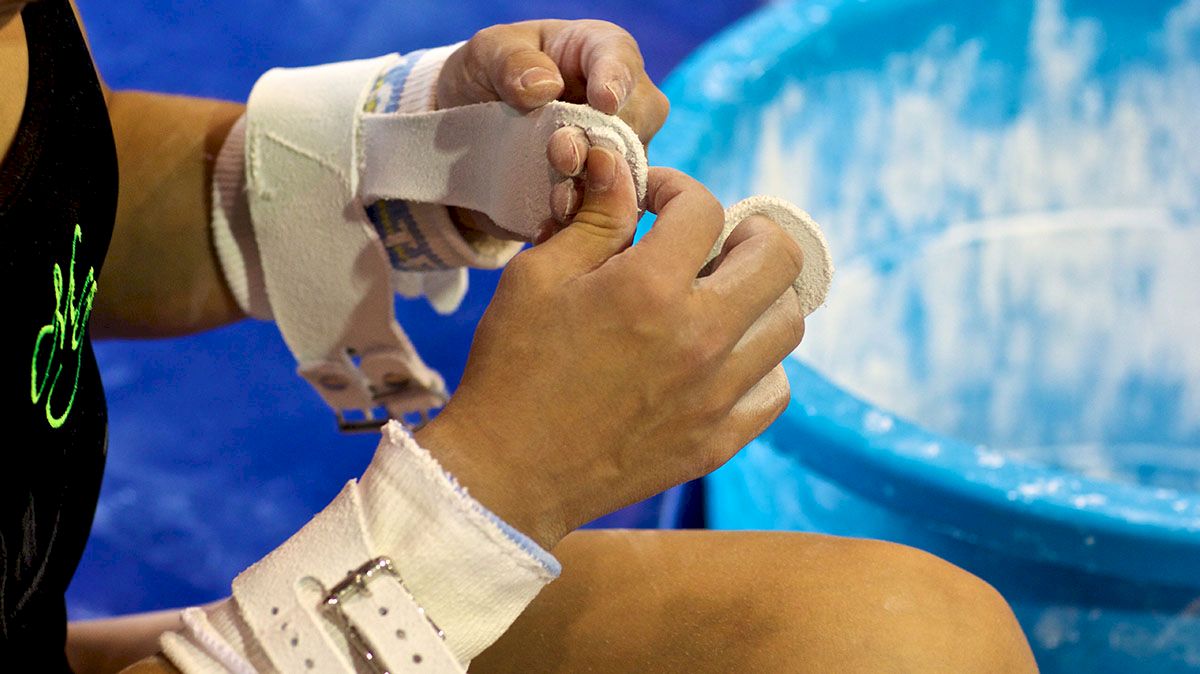
By Karen Psiaki, RDN
IOC Certified in Sports Nutrition
My name is Karen, and I’m a Registered Dietitian as well as a former gymnast. Over the next several weeks, I will be writing about health and nutrition topics for gymnasts, ranging from body image and weight management to hydration, meal timing, and specific nutrient needs. If you have a nutrition question or topic you’d like me to cover, write it in the comment section below or send Gymnastike an email!
-------------Where there is exercise, there is surely injury. Nowhere is this statement more accurate than in the sport of gymnastics! Sooner or later, it happens to nearly all gymnasts, whether elite athletes or beginners. Right now we’re at the wind-down point of the elite season and the ramping up of the annual J.O. meets, so there may be an onslaught of injuries related to both chronic overuse and new skills gone awry.
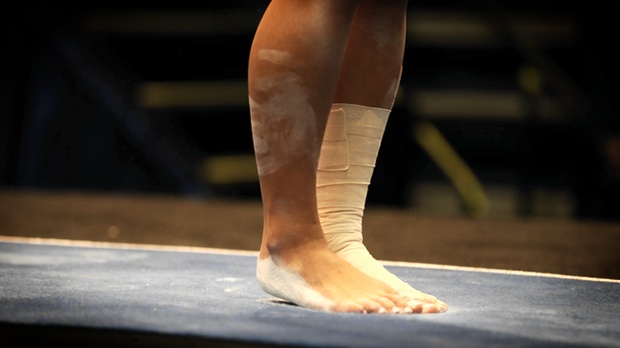
When an athlete is injured, their activity levels obviously have to decline relative to the severity of the injury. Unfortunately, in the gymnastics world, this can be devastating as every day and every workout are important for maintaining skills, flexibility, and strength. (Not to mention that it’s torture sitting on the sidelines and watching as others practice and compete!) It can also be frustrating if the athlete experiences weight gain or muscle loss due to reduced exercise levels.
While I can’t offer any sound advice for injury prevention or management, I can give a few helpful pointers for managing the nutrition side of the equation!
Note: This also applies to athletes who have recently retired from the sport and may lack a consistent workout plan as they transition to new activities.
Managing Nutrition During Injury Recovery:
• Cut back on portion sizes at meals and snacks, rather than eliminating them altogether. This will be easier than completely revising your normal eating patterns!
• Focus on fiber-rich foods to keep you full longer. For example, snacks might include raw fruits and veggies (apple slices, grapes, carrots, celery sticks, bell peppers, etc.), while meals should include whole grains and legumes.
• Stay well-hydrated. Sipping water or low-calorie drinks throughout the day may prevent you from mistaking thirst for hunger, plus it will help to keep you from feeling as hungry between meals and snacks.
• Avoid eating due to boredom. Are you stuck in a chair or bed, eyes glued to the TV or computer screen? Try to find non-food-related entertainment so you don’t accidentally overeat. (Arts and crafts, anyone??)
• Eat slowly, and pay close attention to your bodily cues. Stop eating before you get uncomfortably full! (Really, this is good advice for everyone, NOT just those who are injured.)
• Maintain a moderate protein intake (about 1.0-1.5g/kg) because this is an especially important nutrient for healing and recovery. Instead, focus more on cutting down carb and fat intake to manage your daily calories.
• And lastly, get plenty of sleep! No, this isn’t directly nutrition-related, but sometimes fatigue can play a role in overeating or mistaking the need for sleep as the need to eat. Plus, sleep is important for recovery, so it’s a good idea anyways!
Related:
Nutrition's F-Word
Packing On Power With Protein
Shedding Light On the Carbohydrate Debate
Meal and Snack Timing
Body Image and Disordered Eating
Related:
Nutrition's F-Word
Packing On Power With Protein
Shedding Light On the Carbohydrate Debate
Meal and Snack Timing
Body Image and Disordered Eating
Related Content
 Replay: Lander vs Mars Hill | Mar 28 @ 6 PM
Replay: Lander vs Mars Hill | Mar 28 @ 6 PMMar 29, 2024
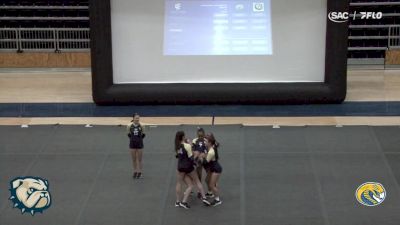 Replay: Coker vs Wingate | Mar 21 @ 6 PM
Replay: Coker vs Wingate | Mar 21 @ 6 PMMar 22, 2024
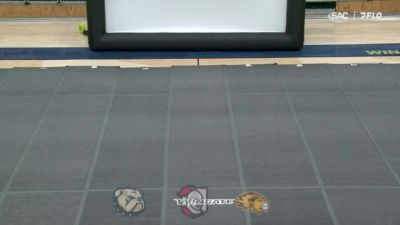 Replay: Wingate Tri-Meet - Acrobatics & Tumbling | Mar 15 @ 5 PM
Replay: Wingate Tri-Meet - Acrobatics & Tumbling | Mar 15 @ 5 PMMar 15, 2024
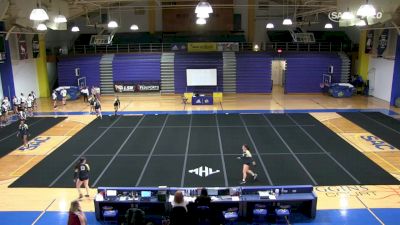 Replay: Mars Hill Tri-Meet | Feb 16 @ 6 PM
Replay: Mars Hill Tri-Meet | Feb 16 @ 6 PMFeb 17, 2024
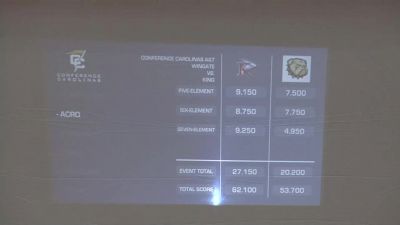 Replay: King (TN) vs Wingate - 2024 2024 King (TN) vs Wingate - Acrobatics & Tumbling | Feb 10 @ 4 PM
Replay: King (TN) vs Wingate - 2024 2024 King (TN) vs Wingate - Acrobatics & Tumbling | Feb 10 @ 4 PMFeb 10, 2024
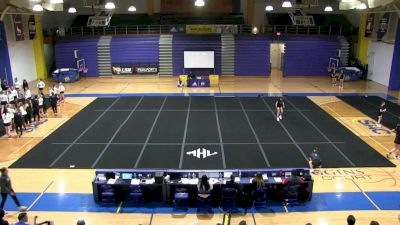 Replay: Belmont Abbey vs Mars Hill | Feb 10 @ 3 PM
Replay: Belmont Abbey vs Mars Hill | Feb 10 @ 3 PMFeb 10, 2024
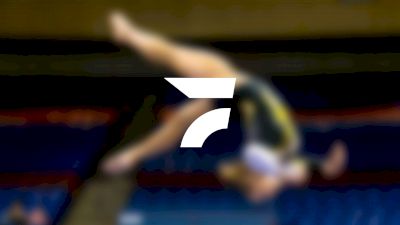 How to Watch: 2024 King (TN) vs Wingate - Acrobatics & Tumbling | Gymnastics
How to Watch: 2024 King (TN) vs Wingate - Acrobatics & Tumbling | GymnasticsFeb 10, 2024
 How to Watch: 2024 Wingate Tri-Meet | Gymnastics
How to Watch: 2024 Wingate Tri-Meet | GymnasticsFeb 8, 2024
 How to Watch: 2024 Wingate Tri-Meet | Gymnastics
How to Watch: 2024 Wingate Tri-Meet | GymnasticsFeb 8, 2024